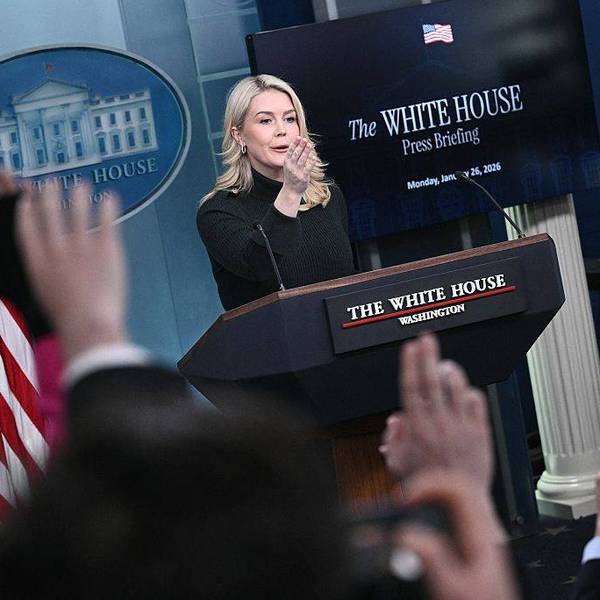As President Donald Trump's story about James Comey's firing continued to unravel, people nationwide held protests Wednesday amplifying calls for an independent investigation into Trump's ties to Russia--and describing Comey's dismissal as a "cover-up."
Roughly 500 people gathered midday outside the White House, demanding the appointment of a special prosecutor to lead "a full, bi-partisan, independent investigation to look into Russia's known hacking of the 2016 U.S. election to benefit Donald Trump, as well as into Donald Trump and his associates' potential collusion with Russia," according to Jo Comerford of MoveOn.org, one of the organizing groups.
Additional actions took place in more than a dozen states Wednesday, including New York, Illinois, North Carolina, Missouri, and Florida.
In Chicago, outside Trump International Hotel and Tower, 29-year-old Cody Davis told Reuters that while he doesn't "have any love for Comey...the reason I'm here today is not that he was fired but because it was so clearly because Trump was afraid of something."
A statement from St. Louis Indivisible, one of two groups that led the "Candlelight Vigil for Democracy" outside the Eagleton Courthouse in St. Louis on Wednesday night, similarly declared: "The simplest explanation is usually the correct one: A cover-up is now underway and the American people can't depend on a largely complicit, Republican-controlled Congress to protect them."
Indeed, Politico reported Wednesday that "Republicans are giving President Donald Trump a pass" for Comey's sudden dismissal, and that Senate Majority Leader Mitch McConnell (R-Ky.) and Senate Intelligence Chairman Richard Burr (R-N.C.) have "forcefully rejected calls for an independent prosecutor or commission" to take over.
Those protesting outside Burr's Winston-Salem office on Wednesday evening were attempting to change the senator's mind--or at least voice their outrage.
"There seems to be a lack of understanding of how the Constitution operates and how the government works," said one local demonstrator, Jeanne Ormsby. "The only way to go is with a special prosecutor. It's gone beyond congressional investigations."
A fellow protester, Andrew Heisler, told the Winston-Salem Journal: "It seems like it's a whole big corruption. Everyone is hiding something."
News reporting on Wednesday and Thursday indicated that the White House's official justification for Comey's firing--that he mishandled the investigation into Hillary Clinton's emails--was nothing more than spin; the Washington Post spoke to "more than 30 officials at the White House, the Justice Department, the FBI and on Capitol Hill, as well as Trump confidants and other senior Republicans," who "paint[ed] a conflicting narrative centered on the president's brewing personal animus toward Comey."
The New York Times likewise reported:
The White House, in a series of shifting and contradictory accounts, first said Mr. Trump decided to fire Mr. Comey because the attorney general and his deputy recommended it. By Wednesday, it had amended the timeline to say that the president had actually been thinking about getting rid of the FBI director as far back as November, after he won the election, and then became "strongly inclined" after Mr. Comey testified before Congress last week.
For public consumption, Sarah Huckabee Sanders, a White House spokeswoman, said on Wednesday that Mr. Trump acted because of the "atrocities" committed by Mr. Comey during last year's investigation into Hillary Clinton's email. But in private, aides said, Mr. Trump has been nursing a collection of festering grievances, including Mr. Comey's handling of the Russia investigation, his seeming lack of interest in pursuing anti-Trump leaks and the perceived disloyalty over the wiretapping claim.
The only way to find out what really happened, wrote Rep. Adam Schiff (D-Calif.) in a Wednesday op-ed, is to appoint an "independent prosecutor, or 'special counsel,' of unimpeachable integrity."
"By firing Comey," Schiff argued, "Trump again has caused the public to wonder whether there is more here than meets the eye. To the long list of questions about his former national security adviser, his attorney general's flawed testimony before the Senate, and his campaign's contacts with Russia, we must now add one more: Why, really, did the president fire James Comey?"



